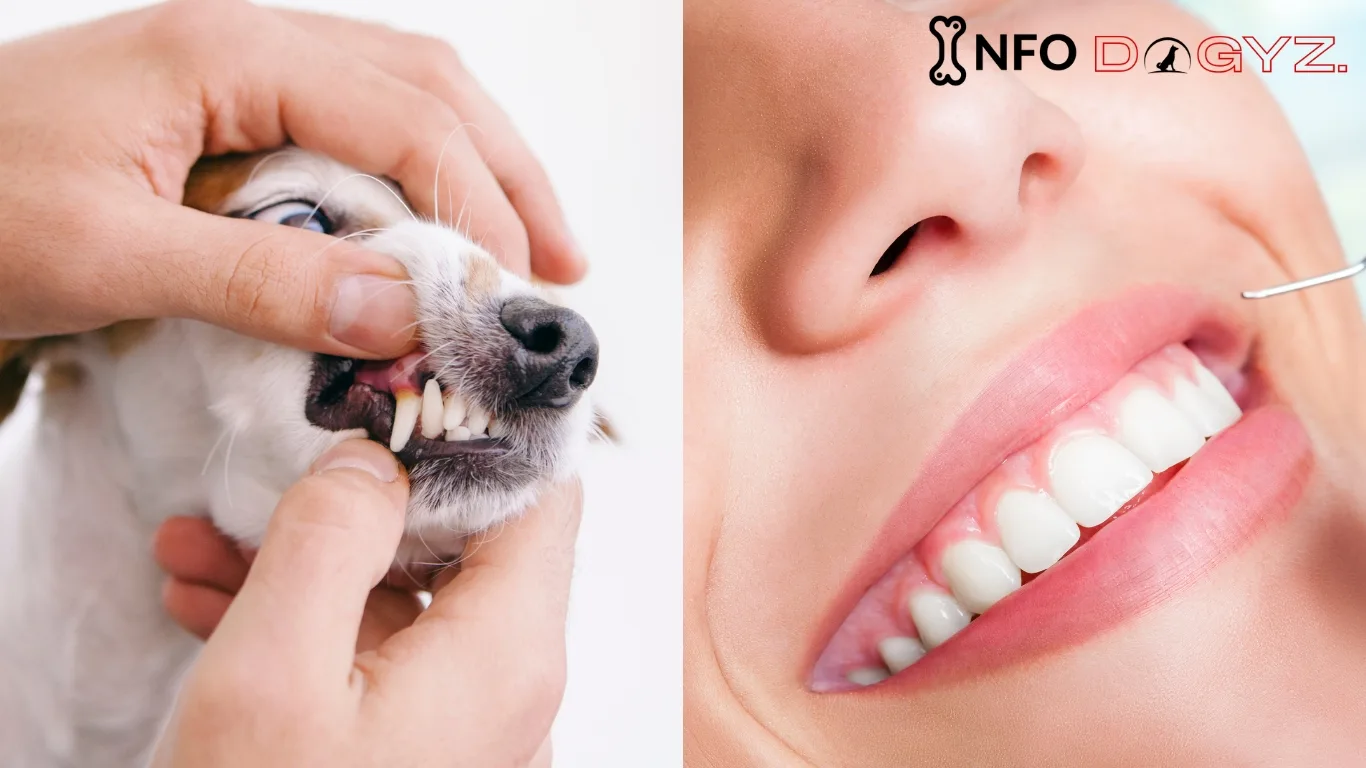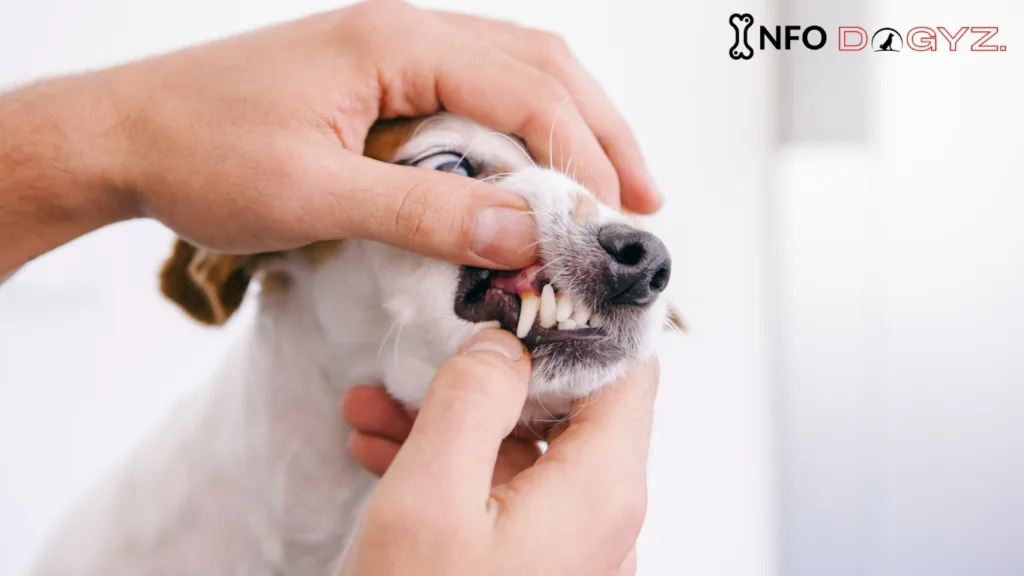
When it comes to our bushy partners, dogs, we frequently locate ourselves considering numerous questions about their fitness and conduct. “Are dogs’ mouth cleaner than humans” is one of the maximum common queries. In this article, we can resolve the myths, statistics, and medical findings to shed light on this age-antique query. So, permit’s dive in and discover the fact about dogs’ mouth cleanliness.
Table Of Contents
Are Dogs’ Mouth Cleaner than Humans?
As we delve into this question, it is important to understand that evaluating the cleanliness of a canine’s mouth to that of a human is more complex than it seems. Dogs and humans have distinct oral microbiomes and lifestyles, largely determining typical oral fitness.
What Factors will Influence the Oral Hygiene?
Whether or not a dog’s mouth is cleaner than a human’s mouth has long been a subject of curiosity and debate. While it’s tempting to assume that puppies have cleaner mouths due to their common licking and seemingly lower prevalence of dental troubles, several elements affect oral hygiene in both puppies and people.
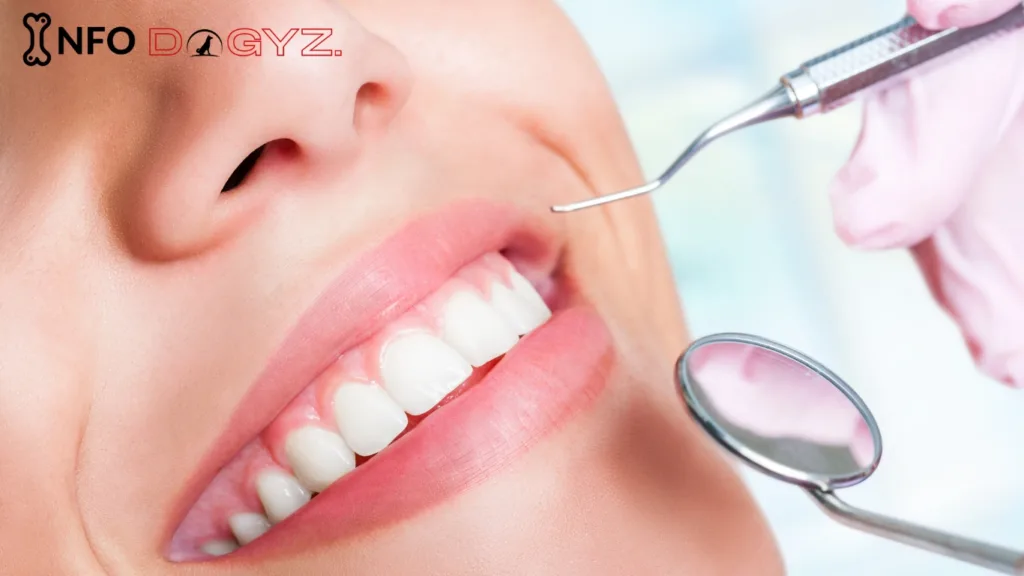
Firstly, the natural bacterial flora differs among species. Humans have various microorganisms in their mouths; some of that is useful, while others can lead to dental issues. Similarly, dogs have their particular oral microbiome. However, evaluating the overall cleanliness completely based on bacteria is tough.
Secondly, oral hygiene practices significantly impact the cleanliness of the mouth. Humans have a distinct benefit in this regard, as they can exercise oral hygiene through ordinary brushing, flossing, and mouthwash. These practices assist in disposing of plaque, tartar, and meal debris, reducing the hazard of dental illnesses.
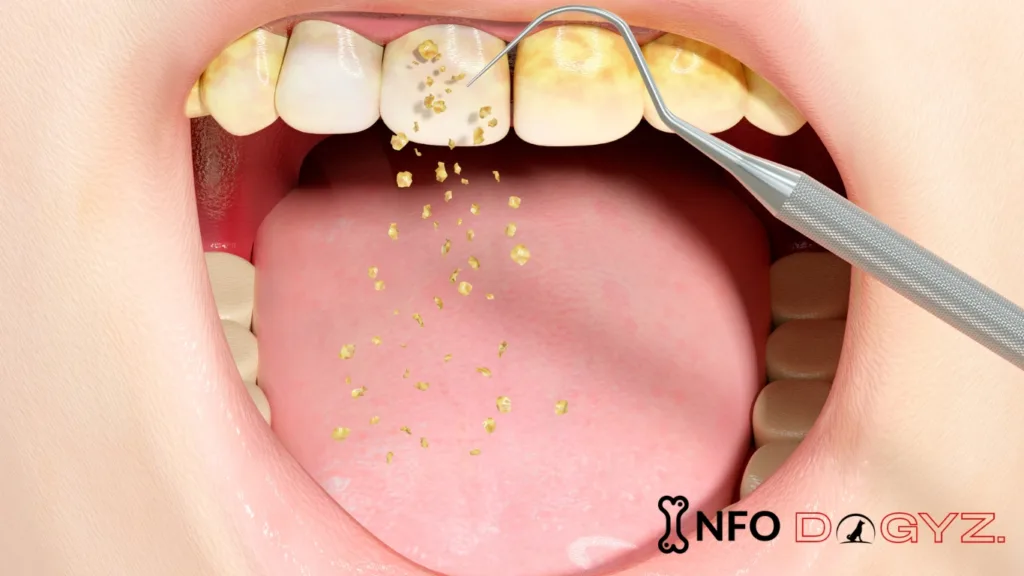
However, dogs depend on their natural chewing conduct to clean their enamel to some extent. Chewing hard toys, bones, or mainly designed dental chews can help remove plaque and tartar. However, without everyday dental care furnished by their owners, dogs are extra susceptible to dental problems, which include periodontal disorder.
Furthermore, the weight loss plan performs a large role in oral hygiene for each puppy and human being. A balanced weight-reduction plan that is low in sugar and processed ingredients promotes healthier teeth and gums. Dogs fed a diet wealthy in dental-friendly nutrients, which includes crunchy kibble or, in particular, formulated dental diets, can also have better oral fitness.
What will be a Comparative Analysis by Dental Anatomy?
Dental anatomy, a department of dental technology, encompasses the observation of tooth systems across extraordinary species. A comparative evaluation of dental anatomy well-known shows exciting insights into the oral health of various organisms. One regularly debated subject is “Are dogs’ mouth cleaner than humans”.
It is vital to apprehend that cleanliness is subjective and can be interpreted in multiple approaches. While dogs have a one-of-a-kind oral surrounding and oral microorganisms more than humans, evaluating cleanliness based totally on microorganisms would need to be more accurate. Humans maintain oral hygiene through everyday brushing, flossing, and dental care, while dogs rely on natural mechanisms together with chewing, licking, and saliva.
Though puppies own positive antibacterial homes of their saliva, they can still harbor dangerous bacteria. Additionally, puppies have specific dental issues like tartar buildup, gum disease, and enamel decay, necessitating expert veterinary dental care.
Ultimately, evaluating the cleanliness of a canine’s mouth to that of a human is tough because of the specific anatomical and physiological variations between the species. Maintaining true oral hygiene and searching for suitable veterinary care is important for puppies, just as dental hygiene is important for people.
What type of Bacteria are in Dogs’ Mouths?
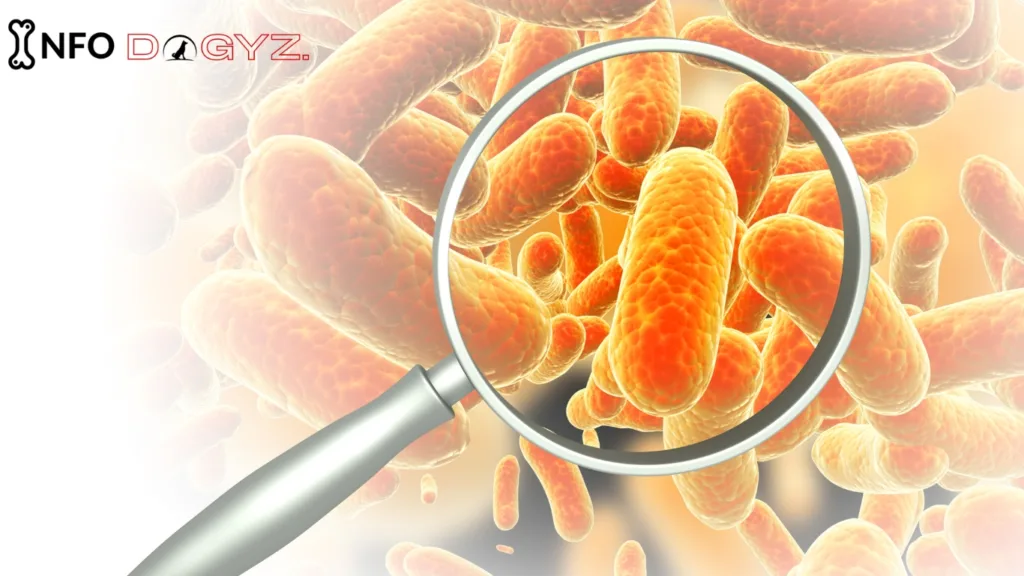
Are dogs’ mouth cleaner than human beings? The common perception that dogs have cleaner mouths is largely a myth. While it is authentic that puppies’ saliva contains positive antibacterial houses, their mouths can harbor many microorganisms. Dogs discover the world with their mouths, licking diverse surfaces and items that can introduce bacteria into their oral cavity.
Additionally, dogs can carry harmful bacteria, which include Salmonella or E. Coli, which can be transferred via licking or biting. In evaluation, humans preserve better oral hygiene practices, including normal brushing, flossing, and dental test-ups, decreasing the bacterial load in our mouths.
Furthermore, the microorganism in dogs’ mouths can range from those discovered in humans, making direct comparisons hard. It’s critical to notice that at the same time, as puppies’ saliva might also have some beneficial homes, it does not make their mouths inherently cleaner. Therefore, proper oral hygiene practices for puppies and humans are important for preserving oral health.
What is the Secret Behind the Myth of Dogs’ Cleaner Mouths?
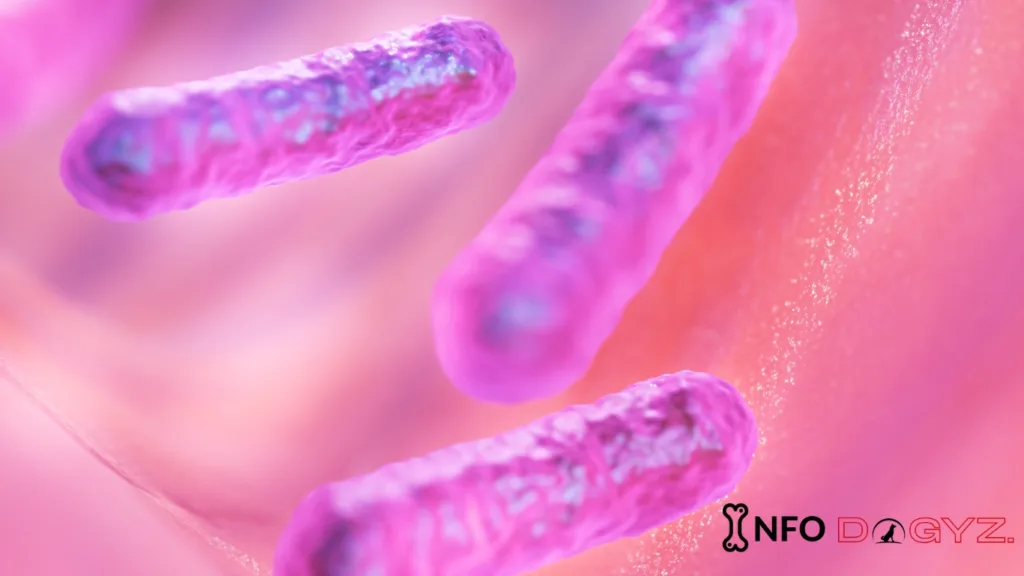
The human mouth is a captivating surroundings teeming with various communities of microorganisms, along with micro organism. While it is real that dogs’ mouths also contain microorganisms, the popular perception that their mouths are cleaner than people’s is certainly a fantasy.
Both human beings and puppies have microorganisms in their mouths, and the unique types and portions vary amongst individuals and species. In truth, humans have evolved a jointly beneficial relationship with certain oral bacteria that useful resources in digestion and protect against harmful pathogens.
The misconception about puppies’ mouths being cleaner may additionally stem from the reality that they frequently lick their wounds, which could promote restoration due to certain antimicrobial residences in their saliva. However, it is crucial to word that dogs additionally have special oral hygiene behavior and diets than people, which can affect the bacterial composition in their mouths.
Maintaining appropriate oral hygiene practices, brushing and flossing regularly, is vital for each person and dog. These practices assist in getting rid of plaque and reduce the danger of oral health issues because of microorganisms.
In the end, while dogs may additionally have a few precise characteristics in their mouths, there’s no evidence to aid the declaration that their mouths are more purifiers than those of human beings. Both species harbor bacteria in their mouths, and proper oral hygiene is vital for maintaining proper oral health for each human being and their dog companions.
What is the Difference for Oral Health in Dogs and Humans?
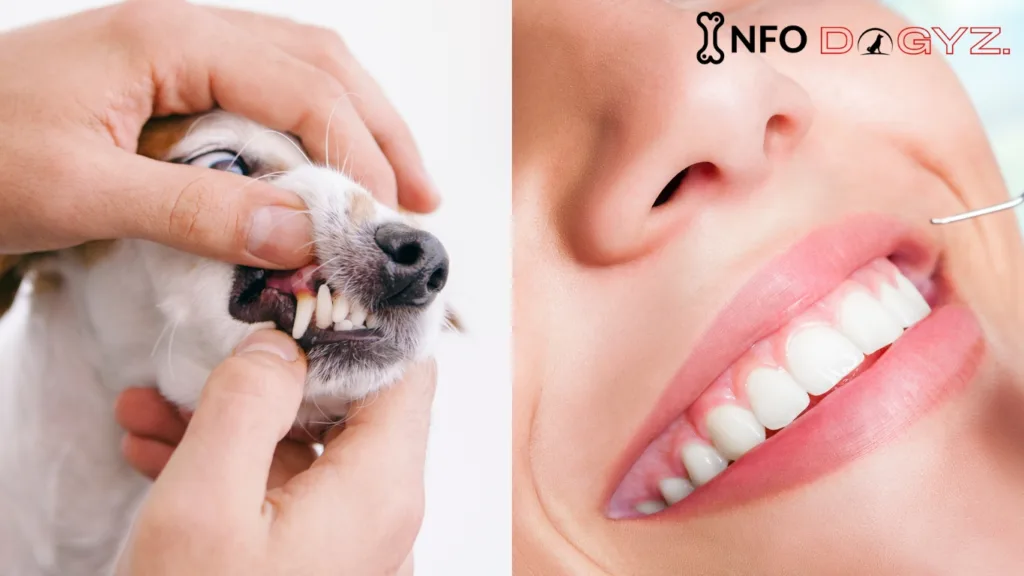
Oral health is important for puppies and people because it directly impacts common properly-being. While there are similarities between canine and human oral fitness, there are also remarkable differences.
One similarity is the presence of teeth. Dogs, like humans, have a fixed of everlasting teeth that develop and erupt all through their early years. Both species also enjoy dental problems with plaque, tartar, and tooth decay. Regular dental care, including brushing and expert cleanings, is crucial for maintaining oral fitness in each puppy and person.
However, there are a few key differences. Dogs have a different dentition than people, with sharp canines for tearing meat and molars for crushing bones. They lack incisors between the canine, which humans use for biting into meals. Additionally, puppies have a wider variety of enamel than humans, with a mean of 42 compared to our 32.
Another wonderful difference is the manner dental illnesses take place. While people regularly revel in toothaches and sensitivity, dogs may additionally showcase symptoms such as bad breath, difficulty chewing, drooling, or swollen gums. Regular veterinary check-up are crucial for detecting and treating dental issues in dogs, as they cannot speak their pain verbally.
In conclusion, oral health is a shared subject for dogs and people. While there are similarities in the importance of regular care and the occurrence of dental problems, the anatomical differences and signs and symptoms experienced by each species spotlight the need for species-particular approaches to oral hygiene and professional care.
What is the 8 Tips for Maintaining Good Oral Hygiene?
Maintaining accurate oral hygiene is important for both humans and puppies. While there’s a popular notion that puppies’ mouths are cleaner than human beings, it is essential to observe that they have exceptional oral environments. Here are some recommendations for preserving top oral hygiene for both human beings and puppies:
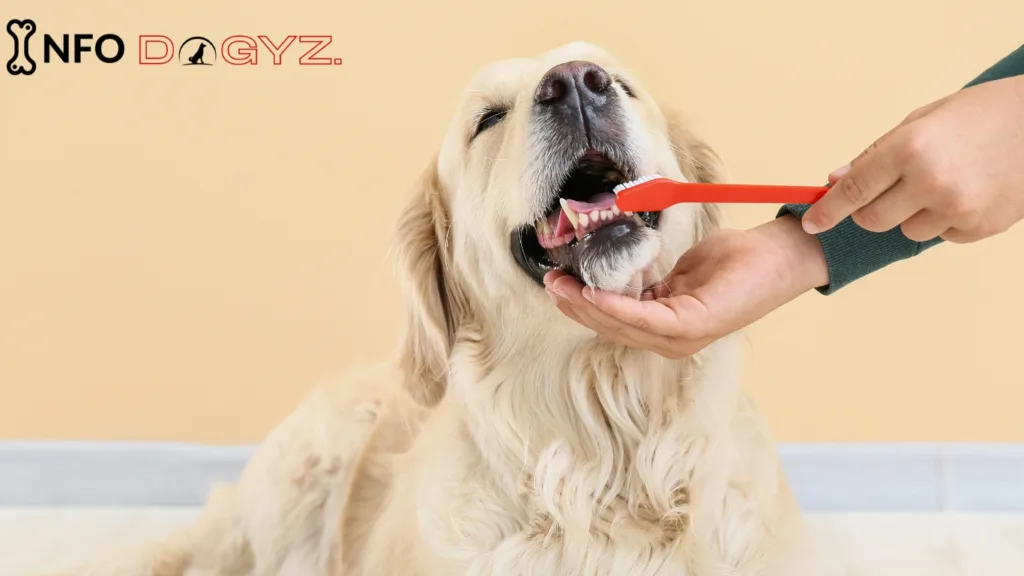
- Brushing: Regularly brush your enamel using a soft-bristled toothbrush and fluoride toothpaste. For puppies, use a toothbrush and toothpaste specially designed for them.
- Flossing: Use dental floss or interdental brushes to clean your teeth daily. Dogs don’t require flossing. However, dental chews and toys can assist in lessening plaque buildup.
- Diet: Limit sugary and acidic food and drinks, which could contribute to tooth decay in humans. For dogs, offer a balanced food regimen with dental-friendly meals and avoid giving them sugary treats.
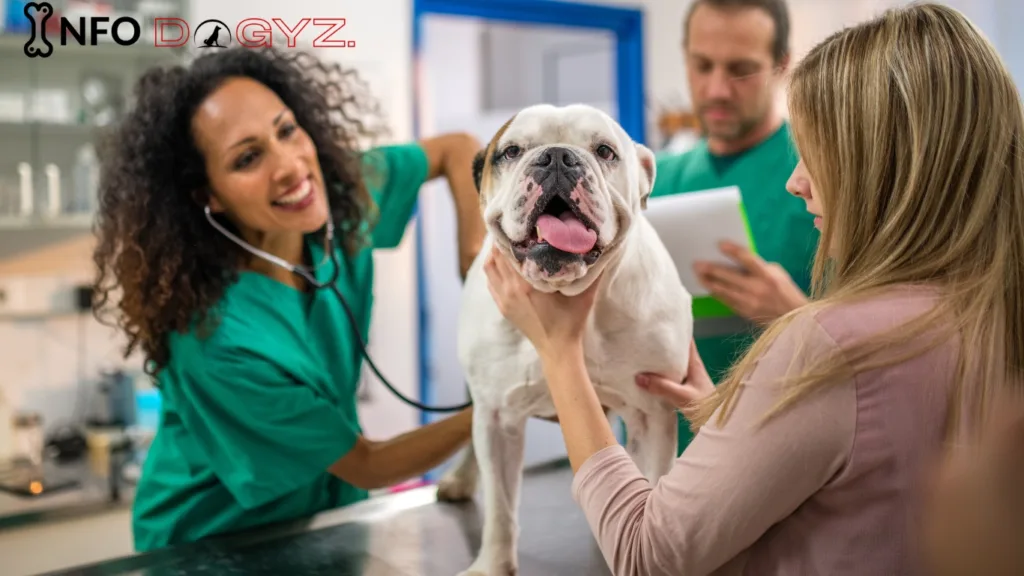
- Regular check-ups: Visit your dentist at least twice every 12 months for professional cleanings and dental examinations. Dogs should have normal veterinary check-ups, including oral examinations and cleanings if needed.
- Water: Stay hydrated with water because it facilitates washing away meals debris and micro organism. Dogs should have to get entry to sparkling water always.
- Dental merchandise: Use mouthwash or rinse recommended by your dentist to help lessen microorganisms in your mouth. For dogs, dental sprays or water components could help hold oral health.
- Chew toys: Provide suitable chew toys for puppies to help maintain their teeth easily and robustly. Avoid tough toys that could harm their teeth.
- Avoid tobacco: Smoking and tobacco use can lead to oral fitness troubles in human beings. Keep your canine far away from tobacco smoke, as it may be dangerous to their universal health.
Remember, proper oral hygiene is essential for each people and puppy to save you dental issues, including gum disease, tooth decay, and awful breath. Consult with dental professionals or veterinarians for particular guidelines and steering tailor-made for your personal needs.
Conclusion
In conclusion, the perception that puppies’ mouths are inherently purifiers than human beings’ is a myth. Dogs and people have exceptional oral microbiomes, dental anatomies, and oral hygiene requirements. While puppies possess enzymes and saliva for fighting microorganisms, oral health can be compromised without the right dental care.
Regular brushing, expert cleanings, and a balanced eating regimen are vital for maintaining precise oral hygiene in each puppy and human. By prioritizing oral health, we will ensure our hairy buddies, and we’ve got healthful smiles to cherish for years to come.
FAQs
How regularly must I brush my dog’s teeth?
Ideally, you should brush your dog’s tooth for at least three instances every week. However, everyday brushing is recommended for the choicest oral hygiene.
Can I use human toothpaste for my canine?
No, human toothpaste isn’t always suitable for dogs. It carries ingredients that may be poisonous to them. Always use toothpaste formulated specifically for dogs.
Is terrible breath in dogs normal?
Bad breath in puppies can indicate underlying dental issues. While a few moderate scents are ordinary, persistent foul breath might also sign gum ailment or tooth decay. Consult a veterinarian if your dog has chronic awful breath.
Are dental chews powerful for puppies?
Dental chews can help remove plaque and tartar buildup, promoting oral hygiene. However, they should be used as a complement to everyday toothbrushing rather than as a replacement.
How regularly should I take my canine for expert dental cleanings?
Professional dental cleanings for puppies are normally recommended as soon as a yr. However, the frequency can also vary depending on your dog’s oral fitness and the veterinarian’s advice.

